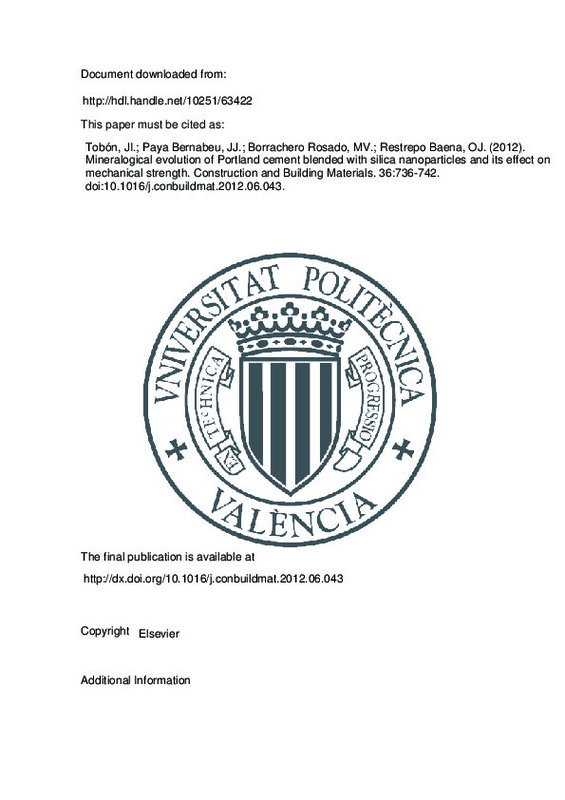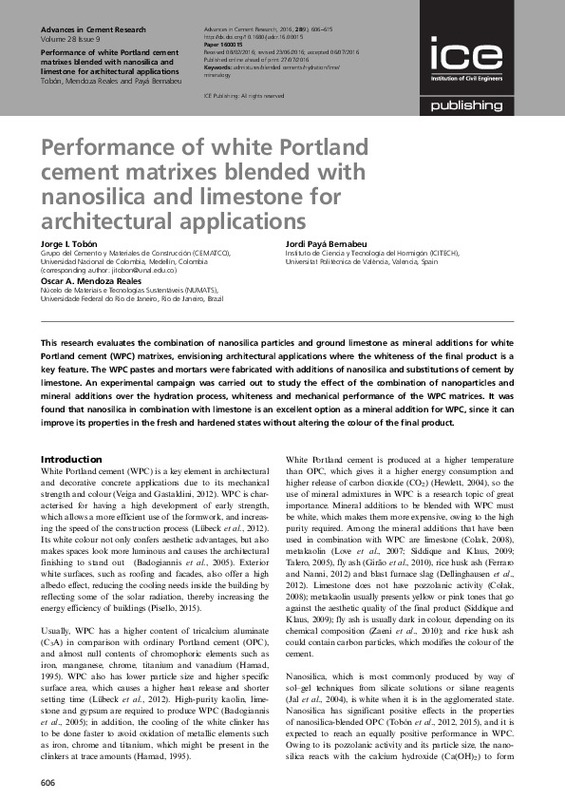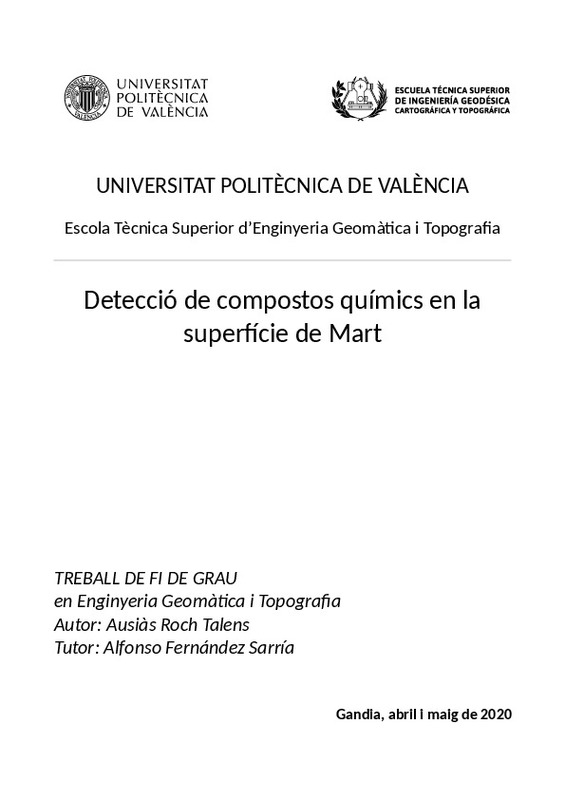Tobón, JI.; Paya Bernabeu, JJ.; Borrachero Rosado, MV.; Restrepo Baena, OJ. (2012). Mineralogical evolution of Portland cement blended with silica nanoparticles and its effect on mechanical strength. Construction and Building Materials. 36:736-742. https://doi.org/10.1016/j.conbuildmat.2012.06.043
Por favor, use este identificador para citar o enlazar este ítem: http://hdl.handle.net/10251/63422
|
Título:
|
Mineralogical evolution of Portland cement blended with silica nanoparticles and its effect on mechanical strength
|
|
Autor:
|
Tobón, J. I.

 Paya Bernabeu, Jorge Juan
Paya Bernabeu, Jorge Juan

 Borrachero Rosado, María Victoria
Restrepo Baena, Oscar Jaime
Borrachero Rosado, María Victoria
Restrepo Baena, Oscar Jaime
|
|
Entidad UPV:
|
Universitat Politècnica de València. Instituto de Ciencia y Tecnología del Hormigón - Institut de Ciència i Tecnologia del Formigó
Universitat Politècnica de València. Departamento de Ingeniería de la Construcción y de Proyectos de Ingeniería Civil - Departament d'Enginyeria de la Construcció i de Projectes d'Enginyeria Civil
|
|
Fecha difusión:
|
|
|
Resumen:
|
Mineralogical analysis on pastes of Spanish Portland cement Type I, blended with nanosilica was carried out by conventional and high-resolution thermogravimetric analysis (TG-HRTG) and X-ray diffraction (XRD) in order to ...[+]
Mineralogical analysis on pastes of Spanish Portland cement Type I, blended with nanosilica was carried out by conventional and high-resolution thermogravimetric analysis (TG-HRTG) and X-ray diffraction (XRD) in order to determine the quantity of the different mineralogical phases obtained during the hydration process. Simultaneously, mortars with the same materials and replacement ratio were made in order to assess their compressive strength for up to 28 days of curing time. In this paper, the rate and quantity of each one of the main constituent phases of the cement during its hydration process (CSH, portlandite, stratlingite, etc.) were determined. A correlation between the quantity of CSH and the development of compressive strength was established. Additionally, the pozzolanic activity of nanosilica was evaluated by quantifying the fixation of calcium hydroxide and its impact on the development of the compressive strength. © 2012 Elsevier Ltd. All rights reserved.
[-]
|
|
Palabras clave:
|
Blended cement
,
Compressive strength
,
HRTG
,
Mineralogy of cements
,
Nanosilica
,
Pozzolans
,
Constituent phasis
,
Curing time
,
High-resolution thermogravimetric analysis
,
Hydration process
,
Mineralogical analysis
,
Mineralogical phasis
,
Nano-silica
,
Portlandite
,
Pozzolanic activity
,
Replacement ratio
,
Silica nanoparticles
,
Crystallography
,
Hydrated lime
,
Hydration
,
Mineralogy
,
Minerals
,
Pozzolan
,
Thermogravimetric analysis
,
X ray diffraction
,
Portland cement
|
|
Derechos de uso:
|
Reserva de todos los derechos
|
|
Fuente:
|
Construction and Building Materials. (issn:
0950-0618
) (eissn:
1879-0526
)
|
|
DOI:
|
10.1016/j.conbuildmat.2012.06.043
|
|
Editorial:
|
Elsevier
|
|
Versión del editor:
|
http://dx.doi.org/10.1016/j.conbuildmat.2012.06.043
|
|
Código del Proyecto:
|
info:eu-repo/grantAgreement/COLCIENCIAS//20201007768/
|
|
Agradecimientos:
|
The authors express their thanks to Cementos Argos S.A. and to COLCIENCIAS (Project 20201007768) of Colombia for their financial support in the execution of this research.
|
|
Tipo:
|
Artículo
|







![[Cerrado]](/themes/UPV/images/candado.png)




